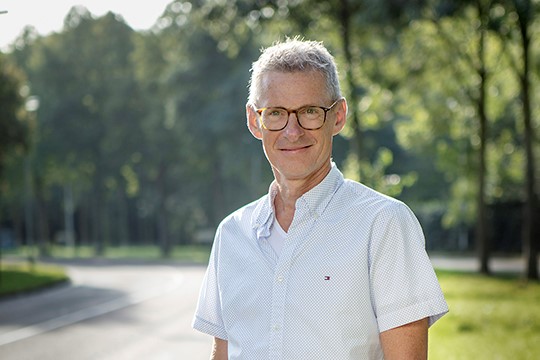Hasn’t the climate crisis already been sufficiently addressed? We know how serious it is, don’t we?
“We all acknowledge that the situation is dire, but we will only hit the nail on the head when we engage in a discussion about what we are going to do about it. We are currently in a crisis of values. Can we as a society bring ourselves to a state where real change is possible? How much solidarity do we feel with future generations? Are we willing to adjust our behavior now for their benefit? We must recognize the urgency of action.”
The IPCC represents the highest level of climate science, their reports have global influence. Why were you selected for this role?
“Perhaps because I have in-depth knowledge of climate physics. At heart, I’m more concerned with the social consequences. I want to be of service to society’s struggle. The responsibility is immense, and when the Dutch government asked me to take on this role, everyone told me how challenging it would be. But it’s in my DNA, and it’s a great platform. I want to elevate the discussion and expect a lot of resistance to be projected onto me.”
In all honesty, are we capable of changing our behavior?
“Think of it like a divorce or changing jobs: you don’t know what you’ll get, but you know what you’re giving up. That’s why we are hesitant to accept change. There will be many losers, essentially everyone who has to give up their habitual patterns. However, we cannot continue as we are. Take car traffic, for instance, it needs to be significantly curbed. Not by focusing on electric vehicles – because they also require energy – but by implementing higher fees and narrower highways. I consider myself and my surroundings as a laboratory. By, for example, not using a car, I don’t even have to think about that pattern.”
Despite having a background in natural sciences, you are heavily involved in behavioural science. Is the climate becoming more of a social science?
“We are paying more attention to societal processes. My chair at VU, which I developed with Frans Berkhout, is based on this: what climate information makes society want to change? It’s nice to reason from a scientific perspective and also ask how we should present this information, how it is dealt with in society, what processes lead to action. Within the IPCC, I will collaborate with experts from sociology, behavioral science, economics… I’m really looking forward to that.”
Doesn’t societal and individual behaviour regarding climate issues lead to frustration?
“I look at society from a given distance. I try to explain behaviour, even if it’s completely irrational or unethical. Frustration about climate measures is understandable, just like my frustration about the lack of necessary action. Only by raising emotions, can we drive action. It will be a bumpy road, but we can make it slightly less bumpy by approaching it rationally.”
You have seven years to make your voice heard at the IPCC. Is that enough?
“I’ll be happy if five percent of what’s in my head has been realized by then. If we can shift the focus from recognizing the problem to the necessity of making choices… This decade will be about adaptation in the climate field, and I will play a role in the societal process. My goal is to produce some good reports that make the dilemmas and necessity even clearer. They should provide a framework for decision-making. We need to be closer to the heart of decision-making.”
